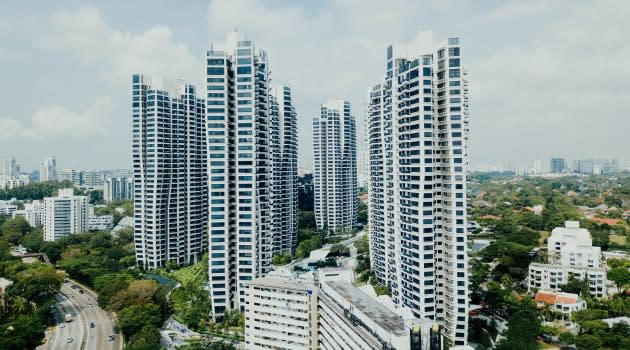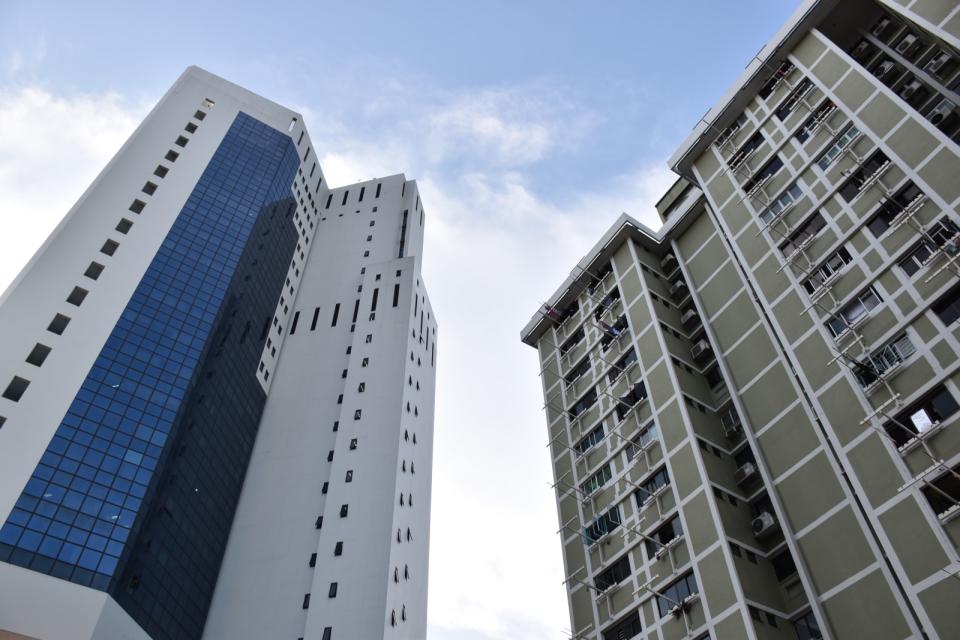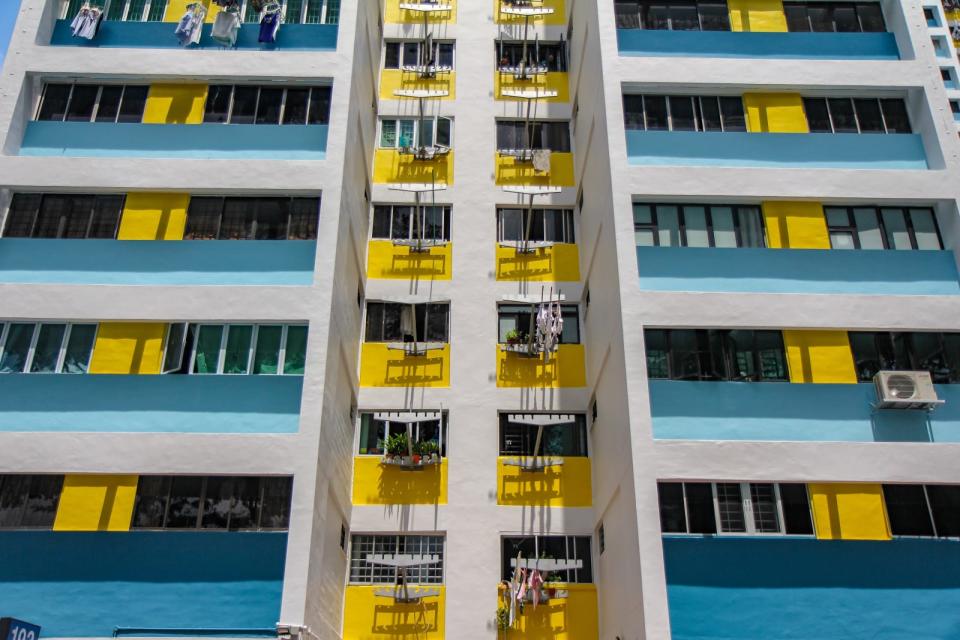Should You Get a Fixed Home Loan or a Floating Home Loan?

For the vast majority in Singapore, home loans are perhaps the largest financial expenditures of our lives.
Typically lasting between 10 to 20 years and costing well into six figures and beyond, mortgages are highly sensitive to interest rate changes. A difference of, say, 0.5% per annum may appear small on paper, but actually adds up to several thousands of dollars over time.
Thus, it is important to be careful when choosing a home loan package, lest you find yourself having to pay more than expected.
Related: Average Cost of Home Loans 2023

Source: Unsplash
HDB Loan or Bank Loan?
If you’re applying for an HDB flat, you can opt for the HDB Housing Loan. This is a mortgage package offered at a concessionary that is equal to the CPF Ordinary Account Base Rate, plus 0.1%.
At present, the HDB Home Loan interest rate is 2.6% per annum, and has been unchanged since July 1999, when temporary hikes were implemented in response to the Asian Financial Crisis.
On the other hand, if you’re not getting a HDB unit (and therefore not eligible for an HDB loan), or prefer to get a loan from a bank, you will need to spend a bit more effort to suss out the best package for you.
This is because not only are there several banks offering home loan packages, you will also have to decide between a fixed home loan or a floating home loan.
Related: HDB Loan vs Bank Loan – What Should You Consider?

Source: Unsplash
Fixed Home Loans And Floating Home Loans – What’s the Difference?
Fixed home loans offer a fixed interest rate upfront
As their name suggests, fixed home loans offer a fixed interest rate – but only for a limited period. Typically, fixed home loans lock in their interest rates for up to the first five years (this varies according to the loan package you choose).
After the lock-in period has passed, the interest rate of the loan will fluctuate according to the Singapore Overnight Rate Average (SORA) or another benchmark or board rate determined by the bank, such as the Fixed Deposit Base Rate (FDR).
With a fixed home loan, you can expect a few years where your mortgage payments remain unchanged, but should be prepared to pay a different amount once the lock-in period passes. Hence, you should plan your budget accordingly, or consider refinancing to a different package after the lock-in period.
Floating home loans have fluctuating interest rates
Floating home loans do not have lock-in periods where interest rates remain unchanged. Instead, the interest you pay depends on the relevant benchmark rate, which can experience high volatility during periods of uncertainty or when central bank interest rates are high.
As such, floating home loans are more attractive during favourable conditions, as they can help you pay less on your home repayments. Generally speaking, they also tend to be cheaper than fixed home loans.
However, during periods of high interest rates, your home mortgage payments will also increase. Thus, floating home loans have less stability, and may only make sense when macroeconomic conditions are right.
Related: Home Mortgage Loan Basics: How Much Can I Borrow?
Pros and Cons of Fixed Home Loans and Floating Home Loans
Fixed Home Loans
Pros | Cons |
|---|---|
Stable mortgage payments during lock-in period | Often costlier than floating home loans, but difference varies according to interest rate trends |
Offers more stability in cash flow, at least for the initial few years | Unable to save when interest rates drop during lock-in period |
Can hedge against coming interest rate spikes |
Floating Home Loans
Pros | Cons |
|---|---|
Generally cheaper than fixed home loans, although actual difference depends on interest rate trends | More volatility in cash flow, as mortgage payments may change as often as every few months |
Can save on housing costs when interest rates fall | Commitment period, if breached, may incur additional fee |
No lock-in period, but may involve a commitment period |
Related: How to Handle Mortgage Stress

Source: Unsplash
Best Home Loans in Singapore
Find the Cheapest Home Loans in Singapore
DBS Fixed Rate Packages
With 3.75% per annum during the lock-in period, and 3M SORA + 1% thereafter, the DBS Fixed Rate home mortgage packages are among the most attractive offers on the market right now.
You can choose fixed rates for durations between two to five years to fit your preferences, and cater for any change in plans with the complimentary waiver of commitment fee due to sale of property. Also included is a one-time free conversion to another mortgage package after a certain amount of time has passed.
The minimum loan amount for this package is S$100,000, making it suitable for smaller homes.
OCBC HDB and Private Home Loan
This floating home loan by OCBC offers an easier start with interest rates that gradually increase for the first three years.
Your instalments are based on three-month compounded SORA + 0.65% per annum for Years 1 and 2, and + 0.80% per annum for Year 3. Thereafter, your interest is pegged at three-month compounded SORA + 1% per annum.
The step-up structure helps provide homeowners with some breathing room to catch up on mortgage payments – barring any freak spikes in interest rates, of course. In any case, you’re free to refinance your mortgage after one year, which acts as somewhat of a safety valve.
For those who believe in paying off their mortgages sooner rather than later, note that this mortgage package allows you to pay off up to 50% of your total loan within the first two years – that’s when the interest is at its lowest.
HLF Fixed Home Refinancing Package
If you’re looking to refinance your home loan, consider Hong Leong Finance’s Fixed Home Refinancing package.
This budget-friendly home loan offers an interest rate of 3.55% per annum with a short lock-in period of just two years, giving you a highly flexible option and savings on your housing expenses.
From the third year onwards, interest increases to 4.5% per annum, which is still competitive with many other mortgage packages on the market. Do note that this package is limited to HDB units only.
Find out what we think of the best home mortgage loans in Singapore, including our top picks for HDB flats, private properties and properties still under construction.
Read More:
How Much Do You Need To Earn Per Month To Buy A Condo in Singapore?
National Day Rally 2023: More BTO Options for Singles — How Singles Can Plan for Their First Home
Cover Image Source: Unsplash
The article originally appeared on ValueChampion. • ValueChampion helps you find the most relevant information to optimise your personal finances. Like us on our Facebook page to keep up to date with our latest news and articles. • More From ValueChampion: • Pros and Cons of Paying Off Your Mortgage Early
3 Reasons Why You Might Need Mortgage Insurance
How Much Do You Need To Earn Per Month To Buy A Condo in Singapore?

 Yahoo Finance
Yahoo Finance 


